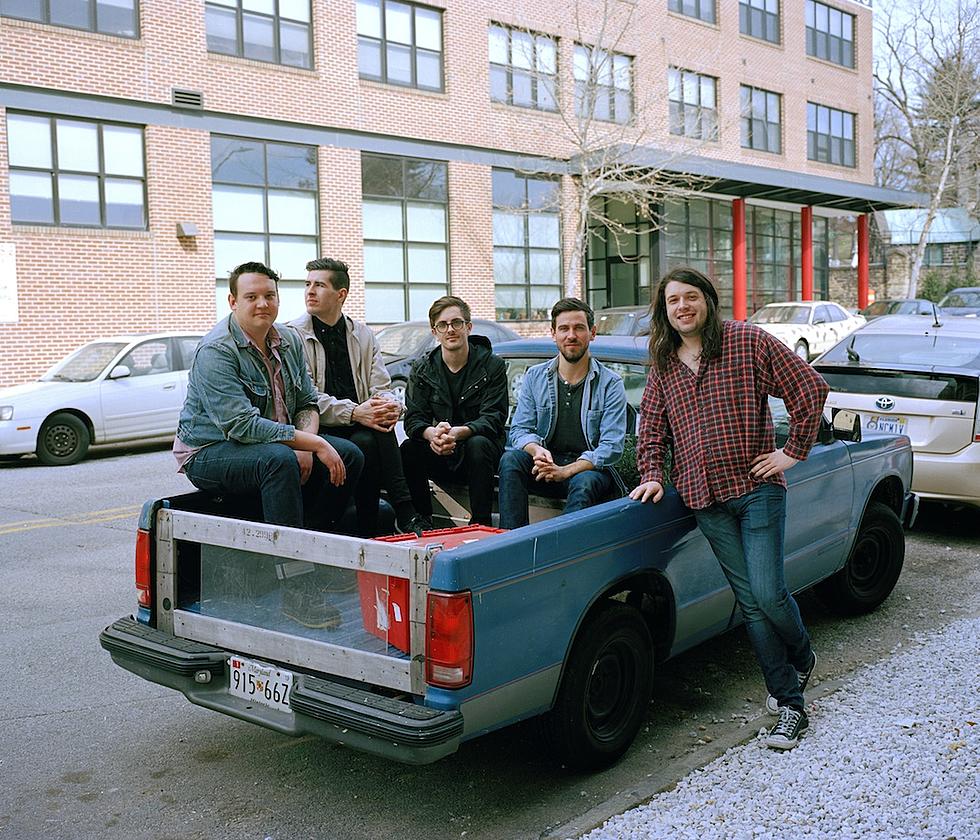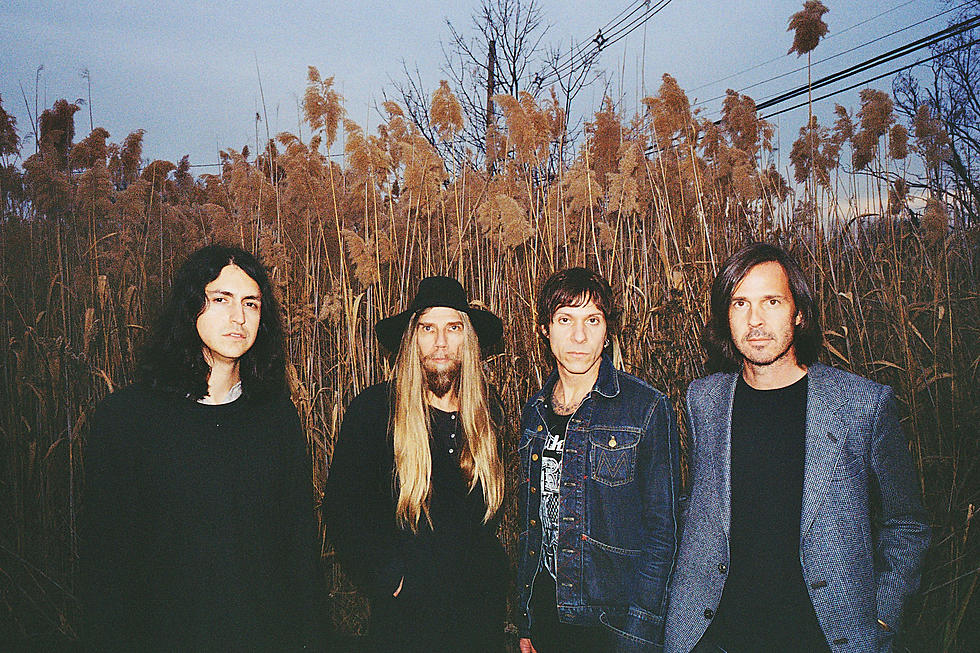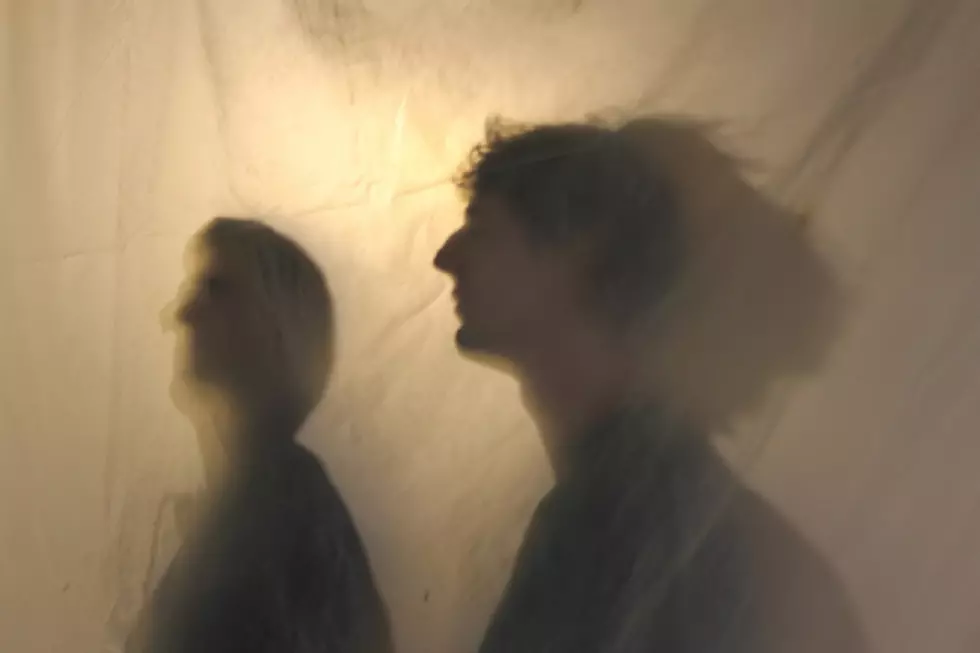
Four Key Records That Influenced Single Mothers’ ‘Our Pleasure’
Influence is fleeting and ever-changing. Sure, a band might be rooted in a particular style, but how they mold their music from that initial blueprint into something different is how they find their specific sound — a rapper may be influenced by Krautrock and seek out old loops, or a metal band might be inspired by Aretha Franklin and decide to move toward clean, epic vocals.
Single Mothers live and die by post-hardcore, taking influence from forefathers that range from Quicksand to indie-rooted acts like Cursive, creating a version that is singularly theirs and singularly incendiary. The band's latest offering is "Long Distance," their newest single streaming here for the first time, from their forthcoming LP, Our Pleasure. Stream that track below and get yours via Dine Alone.
With the new record on deck, we asked frontman Drew Thomson and guitarist Justis Krar about four key records that helped shape Our Pleasure, and how that manifested on the new offering. Their answers are below.
THE MODERN LOVERS, THE MODERN LOVERS
All four of these choices are not only older LPs, but classics. Do you, in general, find more charm in older albums? If so, why do you think that is?
Drew Thomson: I like a certain type of lyricist, and I don’t think that my preference resides in any specific timeline. I just enjoy a clever line, usually laced with a bit of melancholy humor. I like sarcasm and songs that don’t seem forced. Parquet Courts, Protomartyr, Sleaford Mods, Julian Baker, Father John Misty — all have recent releases which include lyrics I really appreciate, but I’ve had more time with the Modern Lovers and Okkervil River albums to sit with and pick at. Maybe it’s not so much charm as it is familiarity and nostalgia that I appreciate in the older albums.
The Modern Lovers seem to be having a bit of a renaissance as of late. How did you first become exposed to them? Was it via There's Something About Mary or a Farrelly brothers film?
DT: Joby J. Ford introduced me to Jonathan Richman while we were recording Single Mothers' first record. Joby is in the Bronx, and was producing Negative Qualities. We showed up underprepared, and were pretty much writing the record in the studio as we went. I wrote a lot of the lyrics right in the vocal booth during those sessions, so he watched me write a lot of the record. He recommended I check out Jonathan Richman, so I did. I liked it, but it took a couple years to really catch on and dig in. I’ve been working at a store this past year off and on, and would listen to the Modern Lovers every morning — the record became part of my daily routine.
What about the Modern Lovers attracts you the most? How do you feel about Richman's solo work?
DT: I like it all. But I love driving through the suburban trees with the suburban speed listening to "Roadrunner" with the radio on.
How did the album influence your work on Our Pleasure? What are some straight lines that you can draw between the two albums?
DT: Our Pleasure is a little more laid back, has a bit more of a rock 'n' roll groove to it. When there are four of us writing together, it’s hard to draw straight lines of influence, but going into some of the demos I had sent to the band, I was listening to a lot of Modern Lovers, and that helped shape some of the songs undoubtedly from the beginning, before we all put our individual stamps on them.
OKKERVIL RIVER, BLACK SHEEP BOY
Black Sheep Boy was the breakout record for OR, but they've had several records of note in the time since, including compelling work from Shearwater and Will Sheff in other avenues. Why Black Sheep Boy? Are the works of Jonathan Meiburg and Sheff registering with you as well?
DT: Will Sheff has an incredible penchant for spinning these gloriously clever and melancholy lyrics into pop hooks. I feel like Black Sheep Boy is littered with lines that make you go grab the lyric sheet and say, "That’s what I’ve been humming all day?" As a lyricist, it’s a goal to grab someones attention without them always knowing it. I think Will Sheff on Black Sheep Boy is a wonderful example of how this is correctly done. I love all Okkervil River releases in varying degrees, but Black Sheep Boy has "A Stone," which is one of my all-time favorite songs to listen to when I’m already bummed.
What is a way that Black Sheep Boy influenced Our Pleasure directly?
DT: There is more melody on Our Pleasure and less just yelling and screaming into the mic. A bit more storytelling, too. "People Are Pets" is a good example of that direction on the record. I’m influenced by good songwriters, and I think Black Sheep Boy is a great album.
THE BREEDERS, POD
Pod was the last LP to feature Tanya Donelly, also of Belly. Although many might cite Last Splash as the bigger and more influential LP, what about Pod makes it more appealing to you?
Justis Krar: Pod is a record that destroys me to this day. My mom used to play [it] a lot when I was growing up, so I think it was imprinted deep in my memory early on. It sounds like they had zero fear making the record. The songs sound as if they picked up their instruments, then got out of the way. The word “pure” sounds stupid, but that's what it feels like to me. It reminds me of what it felt like writing songs with my friends when I was 16. Also, recording a Beatles cover is an amazing move. I can’t bring to mind any other records that have as much space or patience as this record. Last Splash is a great record, but Pod is something really special.
How do these songs translate to songs that you have written on the LP? Are there direct homages to the record?
JK: I think the attitude of “getting out of the way of the song” is what myself and the other band members held through out the writing process, which is how I feel that Pod sounds. Since myself, Ross [Miller, bass] and Brandon [Jagersky, drums] are all childhood friends who have made music together many times before, getting in a room and writing songs was not a complicated process. The songs on Pod translate to songs that I predominantly wrote / arranged for the LP mostly in the dynamics and flow of arrangements. Each instrument utilizes their own dynamic range, and plays with that throughout the record. The song “People Are Pets” isn’t a direct homage, but listening back, it reminds me most of Pod. There is a lot of opposing musical themes that happen throughout: openness / chaos, quiet / loud, dissonance / consonance.
CONSTANTINES, CONSTANTINES
Again, this seems like the less obvious choice than their big, critically acclaimed release, Shine a Light. What is so special about the s/t release, and how does it relate to your new LP?
JK: Constantines gives me [a] similar feeling as Pod. They utilized so many rock 'n' roll elements, but in completely their own way. It sounds reckless and angry. They didn't sound like they tried or forced anything. Every sound on that record is just what naturally came from each individual. The way that me and Ross play together reminds me of how the Cons play with one another. They seem to move as a unit, while still maintaining their own melodic qualities. Each instrument also can play the role of rhythm or lead fluidly. My friend Simon now runs a studio out of the the same space this record was recorded, and we rehearsed in the same space as them above Call the Office in London, Ontario. Maybe there’s some magic in the air.
More From CLRVYNT









